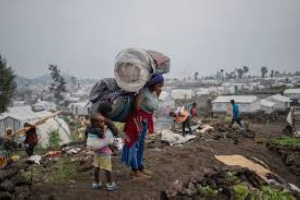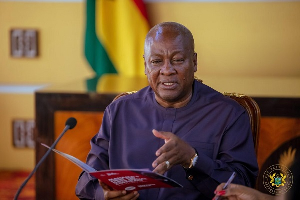Accra Aug. 10, GNA - Mr Abubkar Saddique Boniface, Deputy Minister of Tourism and Modernization of the Capital City on Tuesday said the Ministry was creating land banks to facilitate private sector investment in tourism development and promotion.
"The Ministry is, therefore, preparing land use plans and investment profiles that will ensure proper development with adherence to environmental and socio-economic consideration towards mitigating any negative impact," he said.
Mr Boniface was addressing a two-day workshop on: "Reduction of Environmental Impact from Coastal Tourism," which opened in Accra. The workshop aims at engaging the private sector to formulate appropriate policies by establishing environmental management systems among other objectives.
Mr Boniface said the Sector Ministry was collaborating with the Survey Department to carry out aerial photograph and photomapping and survey of lands for the preparation of site plans for proper documentation.
"Issues about environmental impact from coastal tourism have not attracted the Ministry's attention because of the limited development of coastal tourism in Ghana.
"Coastal tourism in Ghana was limited, not because we do not have the beautiful beaches for coastal tourism development, but because of the current focus on cultural and eco-tourism which gives the country a competitive advantage," he said.
Mr Boniface said the natural productive ecosystems including beaches, mangroves, estuaries and wetlands had a potential for development and expansion of coastal tourism, adding, "the coastal area has concentration of forts and castles settlements and tourism related activities".
Mr Boniface expressed the hope that the outcome of the workshop would help the Ministry to assess the status and potential of coastal tourism and its impact on the environment.
"This will help the Ministry to harmonize the outcome with its policies, strategies and programmes for implementation," he said. Mr Martin Mireku, Chief Executive of the Ghana Tourist Board, said the Ghana's coastal zones and beaches were great potential tourism investments sites, which will promote leisure tourism.
"However, these resources are being exploited making it unattractive for investment"
Mr Mireku mentioned human activities on the beaches as the cause, saying: "The impact is very negative," and called for pragmatic methods to be adopted to prevent such exploitations.
Mr Samuel Quarcoopome, a Director at the Ministry of Environment and Science, called on the Government and the Private Sector to put in place structures that would facilitate the continued growth and development of the Tourism Sector.
He urged the participants to deliberate on how to find sustainable ways to check the diverse impacts of coastal tourism on the environment. "It is my hope that you will come out with policies and strategies that will adequately address the problems confronting us as a nation, in coastal tourism," he said.
Mr Napoleon Gbolonyo, the Programme Co-ordinator, said development of the different segments of the tourism industry had been ad-hoc, unplanned and was growing in uncontrolled manners hence the need for the project.
He said the project was being executed among eight African countries including Ghana, Senegal, Nigeria, and The Gambia for the West African zone, and Kenya, Mozambique, Seychelles and Tanzania for the East African zone.
Mr Gbolonyo said tourism in Africa was based on the natural resource, which impacted on the environment negatively adding that it was for this reason that the Global Environment Facility was funding this project at a total coast of six million dollars with a 3.5 million component coming from the Private Sector over a five-year period.
General News of Tuesday, 10 August 2004
Source: GNA
















